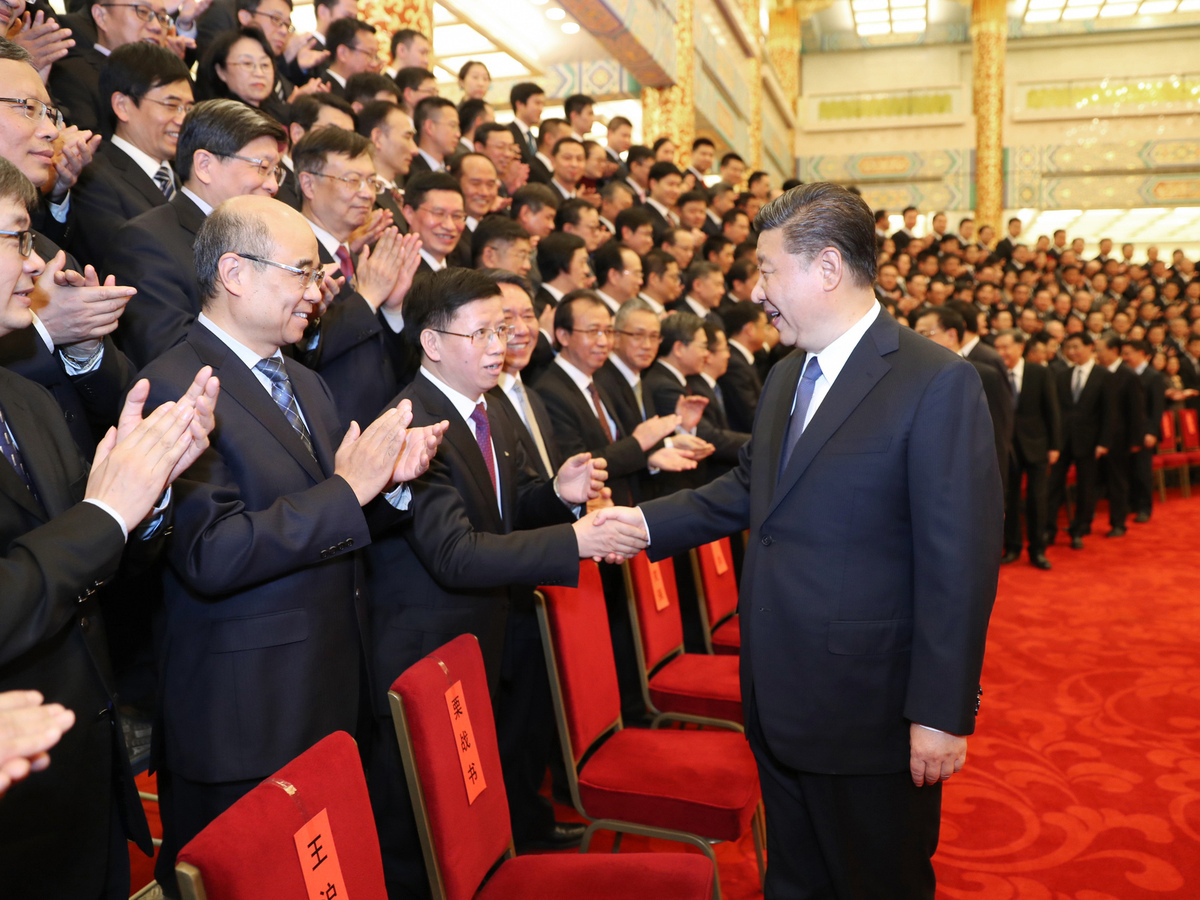Xi urges boost in high-tech development

President Xi Jinping meets space scientists and engineers involved in the research and development of the Chang'e 4 lunar mission in the Great Hall of the People in Beijing on Wednesday. JU PENG / XINHUA
Scientists with Chang'e 4 mission praised as embodiment of innovation
President Xi Jinping on Wednesday urged China's science and technology professionals to uphold innovation and strive to improve the nation's capability in the sector.
When meeting with representatives from the Chang'e 4 lunar exploration program in Beijing, Xi, also general secretary of the Communist Party of China Central Committee and chairman of the Central Military Commission, said the Chang'e 4 mission embodies Chinese researchers' innovative endeavors, and innovation is crucial to China's efforts to become a strong power in science and technology.
The president instructed researchers to focus on strategic, fundamental and cutting-edge fields, catch up with front-runners and set long-term goals. He also encouraged them to strive for breakthroughs in key technology sectors and boost China's research and innovation capabilities so the nation can gain a key place in the global high-tech arena.
Xi thanked China's space industry workers for their outstanding contributions to space exploration and also for inspiring the Chinese people in their path toward the great national rejuvenation.
"There is no end to space exploration. Our science, technology and space workers shall move forward toward the next goals in our lunar program and shall also continue working hard for advances in the world's space undertakings," he said.
Xi said great accomplishments start with dreams, rely on innovation and are fulfilled through hard work.
He said the aim of China's lunar program is to fulfill the Chinese nation's long-held dream of embracing the moon, and he encouraged every industry and every person in China to cherish their dreams and make relentless, generational efforts to realize them.
Xi also said China is willing to work with other nations to foster international communication and cooperation in science.
Chang'e 4 was launched atop a Long March 3B rocket in December at the Xichang Satellite Launch Center in Sichuan province in the country's fourth lunar exploration and the world's first expedition to the moon's far side.
The robotic probe made a soft landing there on Jan 3 and then released Yutu 2, the world's seventh rover on the moon and also the first on the far side, to roam and survey the landing site in the South Pole — Aitken basin, the largest and deepest known basin in the solar system.
Yutu 2 has moved nearly 120 meters across the lunar surface and is in its second dormancy as the moon's far side goes through a 14-day lunar night. It is expected to be reactivated next week.
The Chang'e 5 probe is scheduled to be sent to the moon around the end of 2019. It will collect lunar samples and bring them back to Earth. If the Chang'e 5 mission succeeds, China will become the third nation to retrieve lunar samples, after the United States and Russia.




